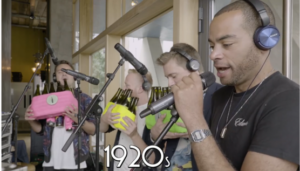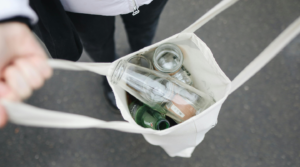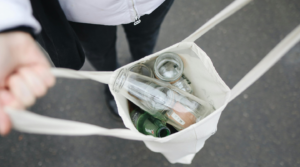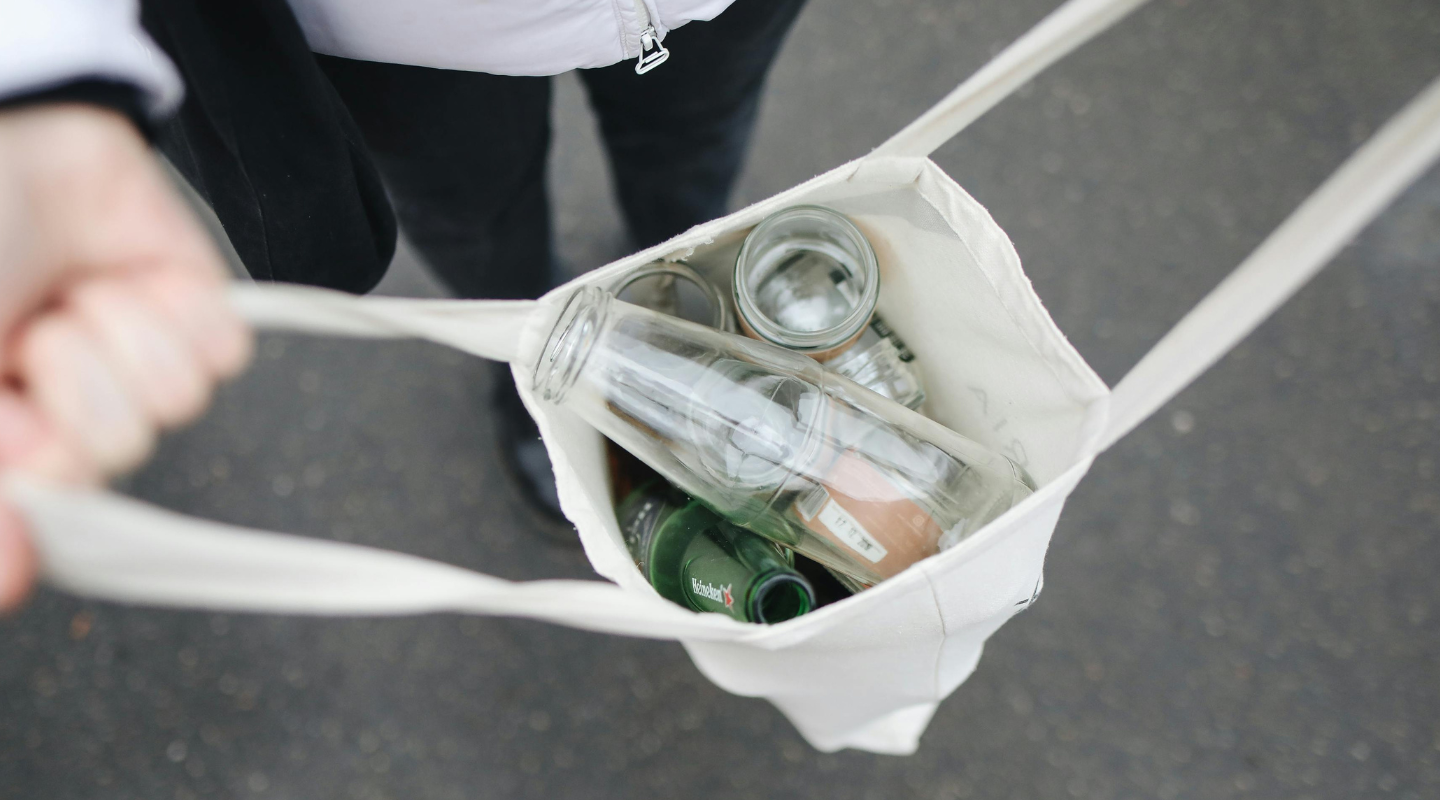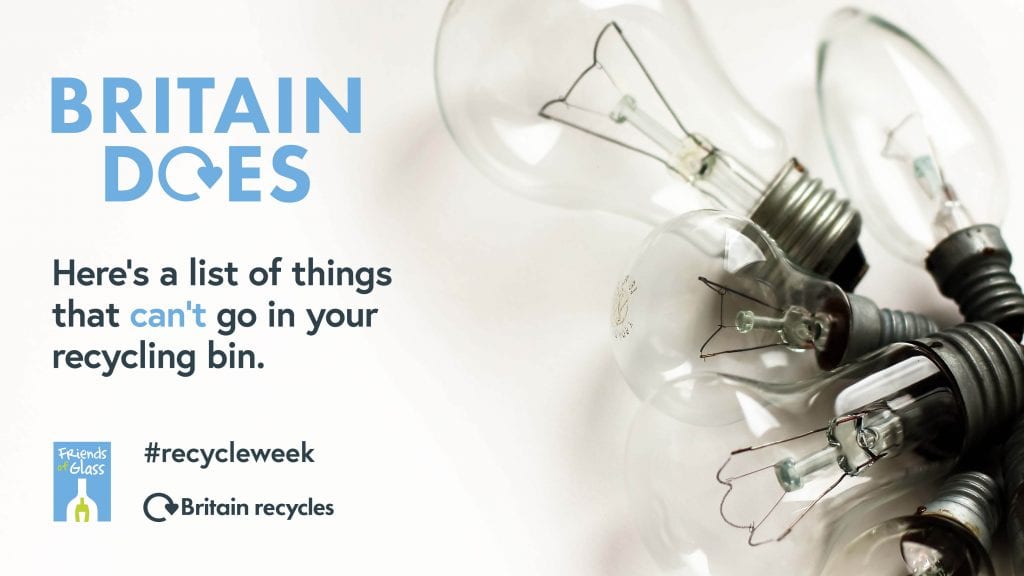Most local authorities accept glass bottles and jars as part of curb side recycling collections – you might be thinking about all the other types of glass you have around the home and wondering why they can’t be collected in your household recycling.
Your local authority’s rules for what you can and can’t put into household recycling might seem fussy but while glass in other items might look the same as bottles and jars – it can have significant differences and create problems if it’s mixed with packaging glass for re-melt. And the difficulty is that, like us, most equipment that sorts glass at recycling centres can struggle to tell the difference.
Here’s what can’t go in your recycling bin:
Glass cookware (eg heatproof jugs, Pyrex dishes, and microwave turntables)
These are made from borosilicate glass – a special type that withstands temperature changes. But it won’t melt properly in most ordinary glass furnaces and can cause serious problems in the production.
Light bulbs
These are made of a heatproof glass, are often coated with special substances and may contain metallic components. All of this can cause problems if they’re re-melted with other types of glass.
Window glass
Glazing is often laminated or has been treated to make it tougher – and so it needs to be processed separately from other glass types if it’s re-melted. Panes of window glass can often be recycled via separate collections at local recycling sites.
Drinking glasses and Vases
Some of these have a different composition to ordinary glass bottles and jars, they may even be made of lead crystal. These glass types will cause will cause problems and wastage in new glass if they get mixed into household recycling.
Nail varnish bottles
Nail varnish bottles are not normally accepted with bottles and jars. While the glass might be the right type, nail varnish contains chemicals which might not be compatible with the recycling equipment in your area. Normally if you clean it out thoroughly using nail polish remover, you can recycle the glass part of the bottle (not the lid/brush).
Mirrors
The metallic coating on mirrors will cause contamination if it’s mixed with other glass types. However many recycling sites do have a specific collection point for mirrors so that they can be properly processed separately. *
Spectacles
Don’t put old sunglasses or spectacles in with your bottles and jars for recycling. They’re not the same type of glass and have hard to remove metal components.
Types of glass other than bottles and jars can often be taken to local recycling sites with extra facilities – check out the Recycling Locator to find the most convenient place for you.
